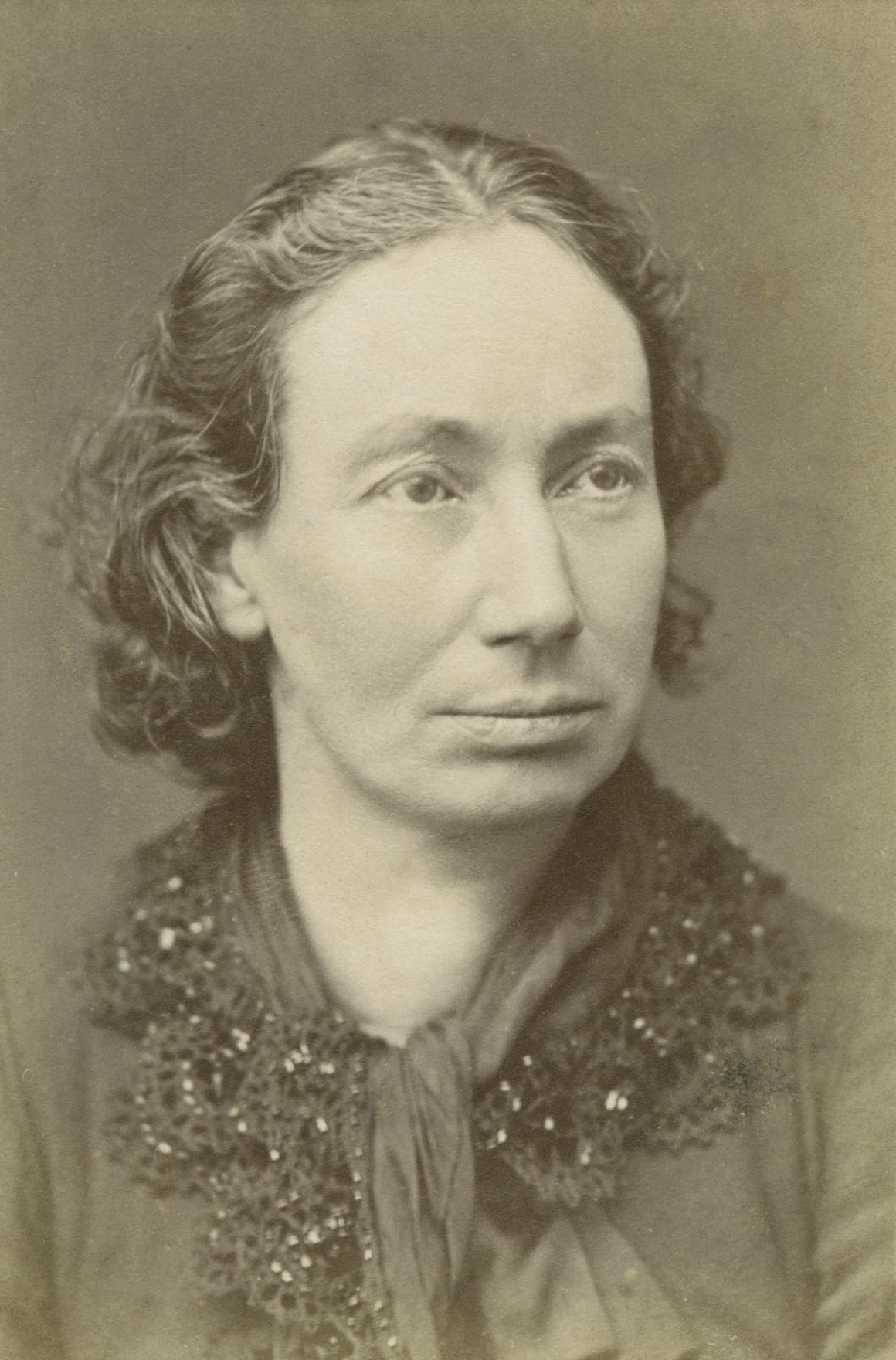Louise Michel (1830 - 1905)
Sat May 29, 1830

Image: Louise Michel c.1880, unknown photographer [Wikipedia]
Louise Michel, born on this day in 1830, was a French anarchist, feminist, educator, author, and militant leader of the Paris Commune.
Born in 1830 as an illegitimate daughter and raised by her grandparents, Louise Michel worked as a schoolteacher before revolution came to Paris, and, in 1865, opened a school dedicated to methods of progressive education.
There, Michel came into contact with radical thinkers such as Jules Vallès and Auguste Blanqui, and was concerned about the impoverishment of those on the margins of French society. In 1869, she was one of the founding members of the "Society for the Demand of Civil Rights for Women", focused on improving girls' education.
In 1870, war broke out between France and the Empire of Prussia. The war quickly ended in defeat for France, and, the following March, discontented members of the National Guard mutinied against the new national government in Paris, marking the beginning of the working class uprising known as the Paris Commune.
Michel joined the rebellion and was elected head of the Montmartre Women's Vigilance Committee, playing an important role in the provisional revolutionary administration. She had a romantic relationship with Théophile Ferré, a senior member of the Commune's Committee of Public Safety.
Michel personally fought on the front lines at the barricades, also organizing ambulance stations to transport the wounded. She expressed a willingness to sacrifice herself for the sake of revolution, stating "I like the smell of gunpowder, grapeshot flying through the air, but above all, I'm devoted to the Revolution."
Michel survived the fall of the Commune and was brought to trial in December 1871. She dared the judges to sentence her to death, saying "It seems that every heart that beats for freedom has no other right than a bit of lead, so I claim mine!"
Unlike Ferré, who was executed, she was instead punished by deportation to a penal settlement in the French colony of New Caledonia in the Pacific Ocean.
In New Caledonia, she became acquainted with the indigenous Kanak people, and took an interest in their culture and language, later supporting them during an 1878 revolt against French rule.
Michel also befriended Nathalie Lemel, another exiled figure from the Commune, and became an explicit anarchist under her influence. In 1880, amnesty was granted to former Communards, and Michel returned to Paris, where she was greeted as a hero by the downtrodden of the city and resumed her revolutionary activity.
Michel later moved to London for five years, where she ran a school for children of political refugees, and became a famed speaker across Europe, meeting figures such as the Pankhurst sisters, Peter Kropotkin, and Emma Goldman.
In 1904, Michel embarked on an anti-colonial speaking tour in French Algeria, before falling ill shortly after. She died in Marseille on January 9th, 1905 at the age of 74. Her funeral was attended by over 100,000 people, receiving delegations from socialist and anarchist groups all across Europe.
Today, Michel remains one of the most famous icons of the Paris Commune and is regarded as a pioneer of anarcha-feminism.
- Date: 1830-05-29
- Learn More: www.rfi.fr, www.marxists.org, www.counterfire.org, en.wikipedia.org.
- Tags: #Birthdays, #Anarchism.
- Source: www.apeoplescalendar.org

